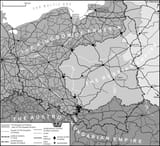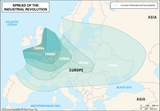>>17912181 (OP)
Unironically, conservatives/aristocrats and serfdom.
During the 19th century, the western countries like Britain, France, USA were experiencing massive economic growth thanks to the Industrial Revolution and capitalism. Agricultural revolution meant you needed less workers to produce even more food, and these excess workers can then move to cities for factory jobs, and ideally build a middle class market for these goods. Thus, you get an advanced and rather self-sustaining economy. Less famine, thanks to better agriculture tech, and people are happier because they aren't living like literal peasants in shacks.
But Russia had a much more entrenched aristocracy and serfdom. Russian intelligentsia knew that serfdom and modern capitalist markets couldn't coexist. You needed cities, but you can't have that when 50% of your population are serfs who can't leave the noble estates. The Russian nobles for their part, refused a temporary disruption to their way of life and pretty much resisted the abolition of serfdom for as long as they could. And when it finally came, they did everything in their power to make the transition as difficult as possible, that serfs stayed de facto serfs.
Part of the proposals for abolition of serfdom was to take noble estates and redistributed them to the newly freed serfs. These serfs can work the land, build wealth, and jump start a middle class. Serfs who failed to do well could move to the cities as part of the factory class since they'd lose the farm. But nobles resisted this, and the vast majority of serfs got nothing. So they were free, but without land, they became renters. Nobles were also hesitant to invest in western tech because, again, they didn't want to invest. They had an abundance of cheap labor via de facto serfs. Why invest?
The short-term reactionary ideology of the Russian elite held them back a lot.





